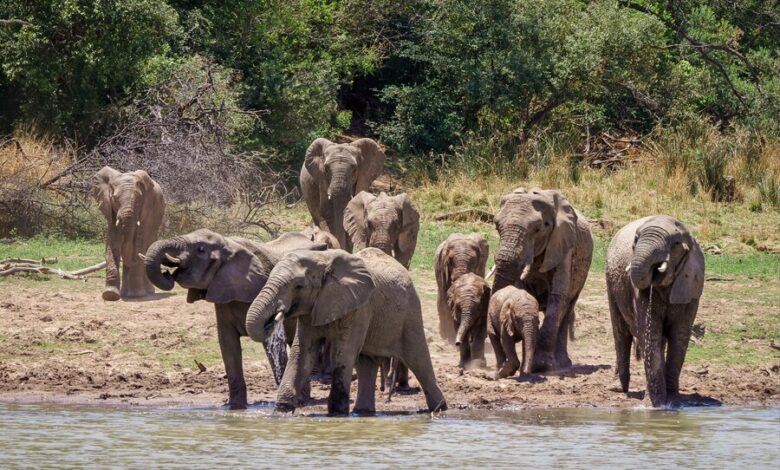ZimParks Approves Elephant Management Exercise in Save Valley Conservancy to Address Overpopulation

The Zimbabwe Parks and Wildlife Management Authority (ZimParks) has issued permits for a targeted elephant management initiative in Save Valley Conservancy, aimed at curbing the growing elephant population that is threatening the ecological balance in the region. The operation will initially focus on 50 elephants, forming part of a broader wildlife conservation and habitat protection strategy.
According to a statement released by ZimParks, the management programme follows the findings of a 2024 aerial wildlife survey, which revealed that Save Valley Conservancy is home to approximately 2,550 elephants—more than three times its sustainable carrying capacity of 800. The alarming numbers have raised concerns over ecosystem degradation, competition for resources, and increased human-wildlife conflict.
“The management quota is meant to address the growing elephant population in the region,” the ZimParks statement read. “We remain committed to responsible sustainable management of wildlife resources for the benefit of present and future generations.”
Efforts to mitigate the overpopulation crisis in the past have focused on translocation. Over the last five years, Save Valley Conservancy successfully relocated 200 elephants to areas such as Hurungwe and Sapi. These moves were designed to ease pressure on the Conservancy’s habitat while also replenishing elephant numbers in other parts of the country where populations were lower.
However, due to the scale of the current overpopulation, translocation alone has proven insufficient. The latest measure, approved by ZimParks, is expected to offer a more immediate and localized solution to managing the herd size and preserving the fragile ecosystem.
As part of the community-focused aspect of the initiative, elephant meat obtained from the management exercise will be distributed to local communities living near the Conservancy. This move is intended to provide nutritional support and foster community involvement in conservation efforts.
Meanwhile, ivory recovered during the operation will not be commercialised. Instead, all ivory will be classified as State property and handed over to ZimParks for safekeeping, in line with Zimbabwe’s strict regulations on wildlife products and international conservation protocols.
The decision underscores ZimParks’ commitment to balancing ecological sustainability with socio-economic needs, while maintaining transparency and ethical standards in wildlife management. Conservationists and government officials alike are watching the exercise closely, hoping it will serve as a model for managing similar challenges in other regions facing wildlife overpopulation pressures.




